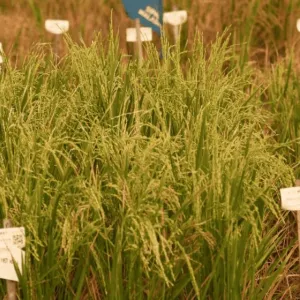Reinventing salt-tolerant rice breeding on ground zero
Dr. Hussain and his team established an innovative method of germplasm screening in a farmer’s field at Infanta, a rice-growing municipality in the Philippine province of Quezon. (Photo: IRRI) Salinity is an agricultural problem that significantly affects rice production and is spreading in fields across the world. Poor irrigation practices, insufficient irrigation water during cropping seasons with low rainfall, high

Reinventing salt-tolerant rice breeding on ground zero
Dr. Hussain and his team established an innovative method of germplasm screening in a farmer’s field at Infanta, a rice-growing municipality in the Philippine province of Quezon. (Photo: IRRI)
Salinity is an agricultural problem that significantly affects rice production and is spreading in fields across the world. Poor irrigation practices, insufficient irrigation water during cropping seasons with low rainfall, high evaporation, increasing saline groundwater levels, and saltwater intrusion in coastal areas are among the significant causes of salinity.
Salinity cuts rice production by 30–50%. Because this growing environmental crisis plagues the world’s largest rice-producing and exporting countries, such as Vietnam, Thailand, Bangladesh, and India, it threatens the future of agri-food systems that feed billions of people. But millions of smallholder rice farmers living along the coastal areas of Asia and Africa are already feeling the brunt of this ever-spreading scourge.
A vast and lasting damage
Salinity inflicts long-lasting damage that affects generations of farmers. In October 1999, a tropical depression in the Andaman Sea gradually developed into a superstorm, the Paradip Cyclone, barrelling towards India. It became the most severe weather system to strike Odisha in the 20th century.
For most, the damages caused by the cyclone are only a memory. The floods have receded, ruins have been rebuilt, and lives so violently interrupted have resumed.
However, more than two decades later, rice farmers in the state’s coastal region along the Bay of Bengal continue living with the cyclone’s aftermath.
Waseem Hussain, who leads the Global Rice Salinity and Flooding Breeding Program at the International Rice Research Institute (IRRI), visited the…

